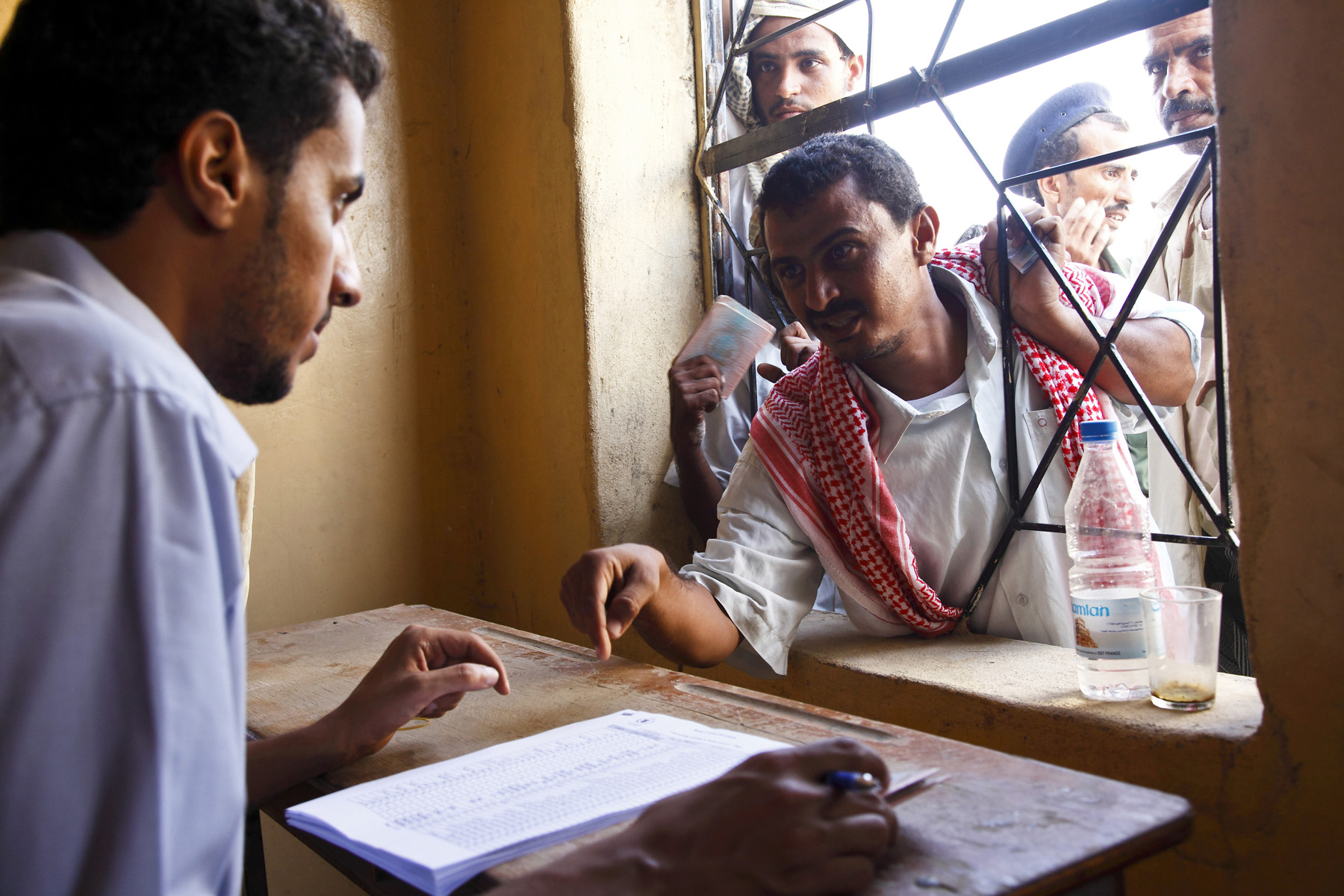“We were about to collect our stuff and return home, but this plan was cancelled after clashes erupted in Harf Sufyan,” Hamid al-Merrani, an IDP from the district, told IRIN. “If we return, we will be killed or forced back,” he said.
Al-Merrani and his family are among some 3,000 IDP (about 19,000 individuals) families sheltering in Sanaa and receiving food aid from the distribution centre in north Sanaa run by the UN World Food Programme (WFP), according to Abdussalam al-Sharaabi, an aid worker from the Social Security Fund working at the centre.
Al-Sharaabi said the number of displaced families receiving food aid continues to increase even after the 11 February ceasefire agreement between Houthi-led rebels and Yemeni army.
“More food is needed to meet the growing needs of IDPs,” he said. “Each family [of seven people on average] gets two sacks [100kg] of wheat, 5kg of beans and 5 litres of cooking oil,” he said. “We don’t have sugar to give them this month.”
Thousands of families displaced by the six-year-old fighting live on aid provided by humanitarian agencies whose operations are threatened by a critical funding situation. Very few have returned to their homes since the ceasefire.
According to the UN Office for the Coordination of Humanitarian Affairs (OCHA), due to insecurity, landmines and heavy damage to infrastructure and loss of livelihoods, the initial voluntary return of families has been slow.
Clashes
A local news source quoted the office of Houthi leader Abdulmalik al-Houthi as saying that fierce clashes erupted on 5 June in Harf Sufyan district, killing nine people and injuring many others.
According to the website, the Houthis set two ambushes against pro-government tribesmen in the district's Maftoula area, killing seven. Houthis said two of their followers were killed.
|
Photo: Adel Yahya/IRIN  |
| IDPs gather next to a WFP truck distributing wheat. IDPs say they do not know when they will go home due to ongoing violence in their home districts |
It said the Houthis denied they had killed or held captive the 30 people, adding that the ceasefire implementation committee moved immediately to the area in an attempt to contain the situation.
The escalating violence, which is entering its seventh day, is an extension of fatal clashes that broke out between Houthi gunmen and pro-government tribesmen in Bani Awair area of northern Saada governorate.
Seventh round
Parliamentary member Mohammed Thabet al-Asali from the Nasserite Unionist Popular Organization, an opposition party, warned that the seventh round of clashes may erupt very soon.
"No official efforts have been expended to persuade Houthis to lay down their arms as per the ceasefire agreement, and there are certain individuals in the government who want the seventh round to erupt to serve their own interests," he said.
Yemeni Foreign Minister Abu Bakr al-Qerbi said that ongoing confrontation in Saada and Amran governorates had been expected as Houthis refused to abide by all the conditions of the ceasefire agreement.
"The government is attempting to convince Houthis that peace is the only way to meet any legal demands and reconstruct Saada," he said during an interview with the Egyptian Ehram daily.
Houthi field leader Abdulmalik al-Houthi demanded that the government immediately release his jailed followers and turn what he called “the 22 May Declaration” (presidential amnesty) into real action on the ground.
ay/at/mw
This article was produced by IRIN News while it was part of the United Nations Office for the Coordination of Humanitarian Affairs. Please send queries on copyright or liability to the UN. For more information: https://shop.un.org/rights-permissions




